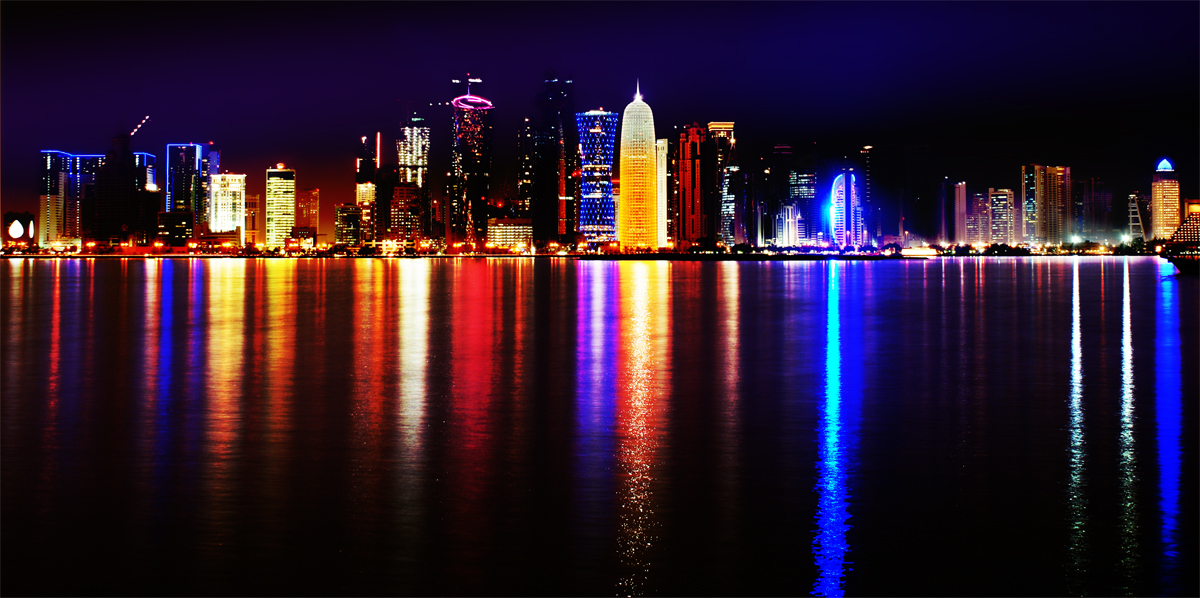This post accompanies CIMA’s latest report, Global Journalism Education: A Missed Opportunity for Media Development? by long-time university journalism educator Charles C. Self.
Although this paper deals primarily with journalism education in non-U.S. universities, American journalism schools have increasingly sought partnerships abroad over the last decade. They include not just international reporting opportunities for domestic students, but degree-granting and training programs that bring new students with very different world views to home campuses. As valuable as these initiatives can be, schools that undertake them need to be able to explain them as part of a strategic plan. Presidents and trustees, donors and alumni, faculty and students, reporters and editorial writers can all be expected to ask whether the returns are worth the costs, and not just the financial ones.
I have been asked countless times why Northwestern’s journalism school (Medill) has set up shop in Qatar, a constitutional monarchy where free press and free expression norms are so different from our own, and where government operations are largely opaque. How do you teach students to report and publish aggressively and professionally in such an environment? Presumably the other schools at the Doha Education City campus, such as Texas Tech (engineering) or Carnegie Mellon (business) don’t face the challenge to their core educational mission and beliefs that we sometimes do. Medill faculty in Evanston and in Doha have been critical of Qatar. At times some trustees have questioned why we’re there.
There are many answers to that question, but one has to do with the mission of a journalism school, indeed of the university. We are in Qatar for the same reason America has always engaged the world and for the same reason media development donors work to build free and independent media in countries from Pakistan to Ukraine. There, as in other places, the arc of social and political change is long, and it is never neat. Free speech norms, never mind journalistic ones, are not universal. What should a leading journalism school do in the world if not engage with it? Today Education City is one of the cultural gems of the region, a place where students and faculty enjoy the same academic freedoms they would in the United States. But there are challenges to manage.
One is that international public opinion is not always equitable or fair, and legitimate achievements can be obscured by disputes between nation states and by superficial news coverage. Where a school chooses to do business matters. No one questions why we are developing dual degree programs with China, for example, but the Middle East is perceived differently.
In Qatar, as any place we might engage, we are working in a different legal system whose rules we are bound to respect. Qatar’s foreign policy is sometimes at odds with that of the United States, at least publicly; it has a history of uneasy relationships with its neighbors, and its foreign policy is to engage with almost everyone.
During Northwestern University Qatar’s early years, Qatar’s image in international media was largely positive, emphasizing trends in education, arts, and culture, and its relatively progressive treatment of women. In the last two years, however, Qatar’s image has taken some hits. Accusations that it won the 2022 FIFA World Cup dishonestly, stories about its immigrant labor force, and charges that it has supported terror groups in the region have all ignited controversy. Some of that coverage is fair, but some has been exaggerated, out of context, or uninformed. The damage is unquestionably made worse by Qatar’s lack of transparency. Foreign policy is thus a concern for NUQ that it probably would not be on most university campuses. When Saudi Arabia, the UAE, and Bahrain withdrew their ambassadors from Qatar in 2014, for example, their decision had the potential to affect travel and supplies. A dispute with another Gulf state killed a faculty appointment.
My view is that Northwestern in Qatar is a signal of positive social change and auspicious for freedom of expression. Under its CEO, Ev Dennis, the school has undertaken research never before done in the Middle East. Its studies of media use in the Gulf States, for example, have become templates for discussion of social media interaction and media freedom in the region. NUQ literally gives cover to media entrepreneurs in the country, many of whom depend on us as thought leaders and professional standard bearers. In turn, Qatar has been strong in its support of a campus with full academic freedom, even if the expressive freedoms at the root of that commitment are not enjoyed by the country as a whole.
Medill cannot be an apologist for Qatari policies, but it does have to explain what it is doing–and why–to its colleagues at the home campus in Evanston and to the rest of the world.


Comments (0)
Comments are closed for this post.